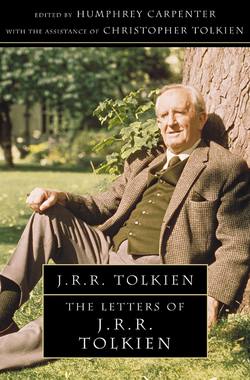Читать книгу The Letters of J. R. R. Tolkien - Christopher Tolkien, Christopher Tolkien - Страница 98
93 From a letter to Christopher Tolkien
Оглавление24 December 1944 (FS 70)
I am v. glad that you enjoyed the next three ch. of the Ring. The 3rd consignment shd. reach you about Dec. 10 and the last on 14 Jan. I shall be eager for more comments when you have time. Cert. Sam is the most closely drawn character, the successor to Bilbo of the first book, the genuine hobbit. Frodo is not so interesting, because he has to be highminded, and has (as it were) a vocation. The book will prob. end up with Sam. Frodo will naturally become too ennobled and rarefied by the achievement of the great Quest, and will pass West with all the great figures; but S. will settle down to the Shire and gardens and inns. C. Williams who is reading it all says the great thing is that its centre is not in strife and war and heroism (though they are understood and depicted) but in freedom, peace, ordinary life and good liking. Yet he agrees that these very things require the existence of a great world outside the Shire – lest they should grow stale by custom and turn into the humdrum. . . . .
By the way, you wrote Harebell and emended it to Hairbell. I don’t know whether it will interest you, but I looked up the whole matter of this name once – after an argument with a dogmatic scientist. It is plain (a) that the ancient name is harebell (an animal name, like so many old flower-names), and (b) that this meant the hyacinth not the campanula. Bluebell, not so old a name, was coined for the campanula, and the ‘bluebells’ of Scotland are, of course, not the hyacinths but the campanulas. The transference of the name (in England, not in Scotland, nor indeed in uncorrupted country-speech in parts of England) and its fictitious alteration hairbell seems to be due to ignorant (of etymology) and meddlesome book-botanists of recent times, of the sort that tried folk’sglove for foxglove!, by whom we’ve been led astray. As for the latter, the only part of the name that is doubtful is the glove, not the fox. Foxes glófa occurs in Anglo-Saxon but also in form -clófa: in old herbals, where it seems pretty rashly applied to plants with big broad leaves, e.g. burdock (called also foxes clife, cf. clifwyrtfn8=foxglove). The causes of these ancient associations with animals are little known or understood. Perhaps they sometimes depend on lost beast-fables. It would be tempting to try and make some fables to fit the names.
Are you still inventing names for the nameless flowers you meet? If so, remember that the old names are not always descriptive, but often mysterious! My best inventions (in elvish of the Gnomish dialect) were elanor and nifredil; though I like A-S symbelmynë or evermind found on the Great Mound of Rohan. I think I shall have to invent some more for Sam’s garden at the end.
